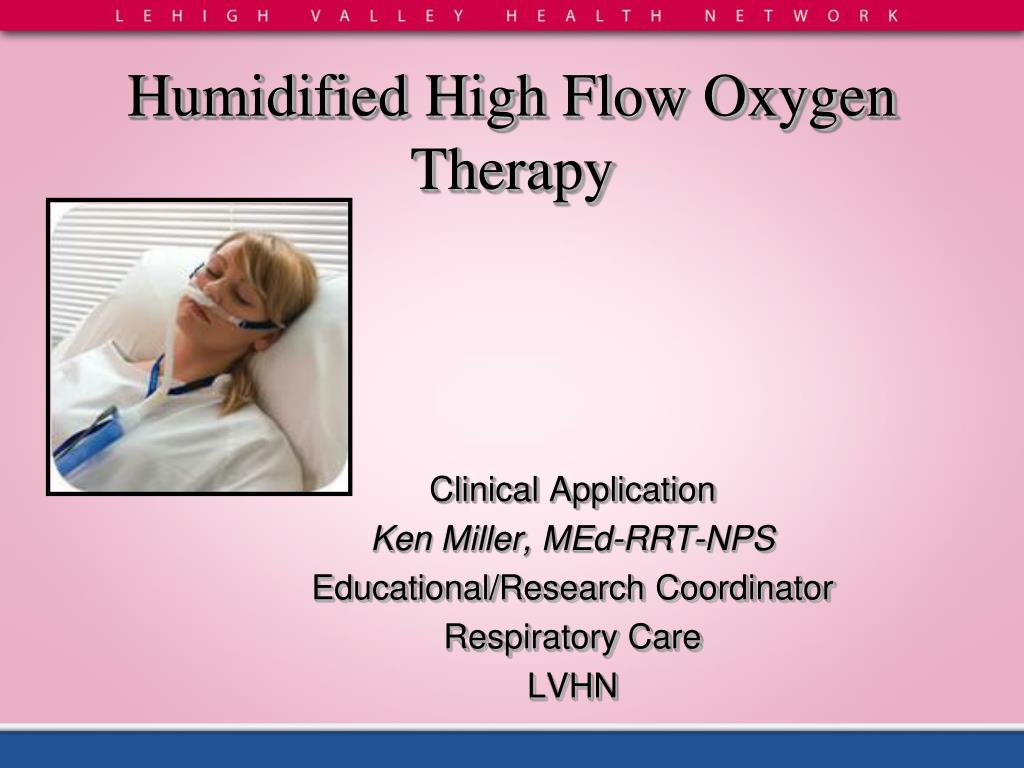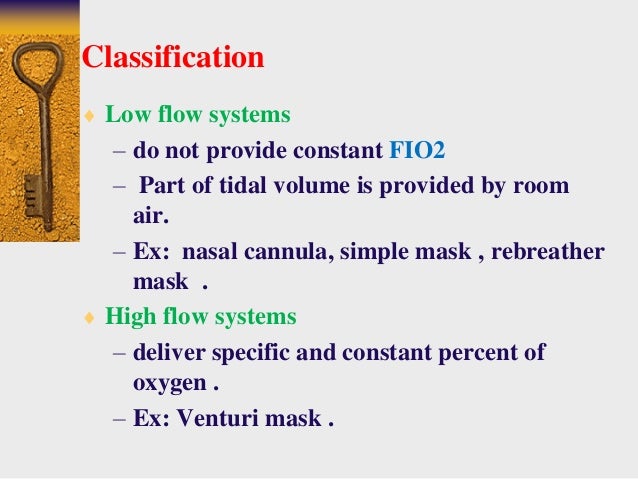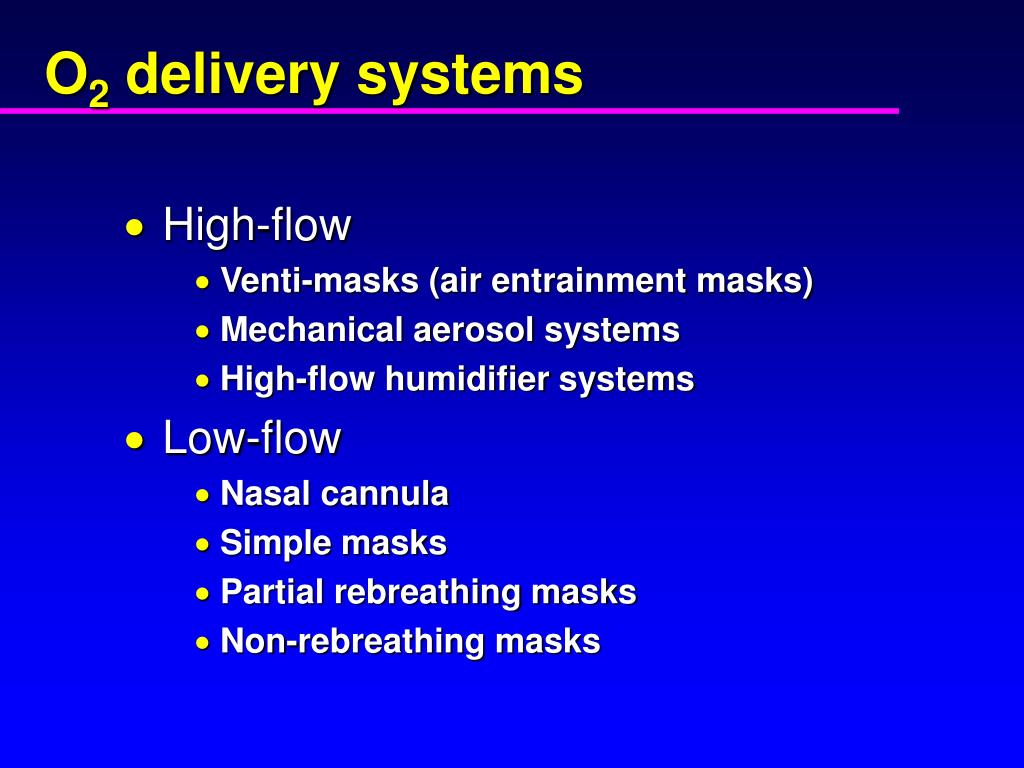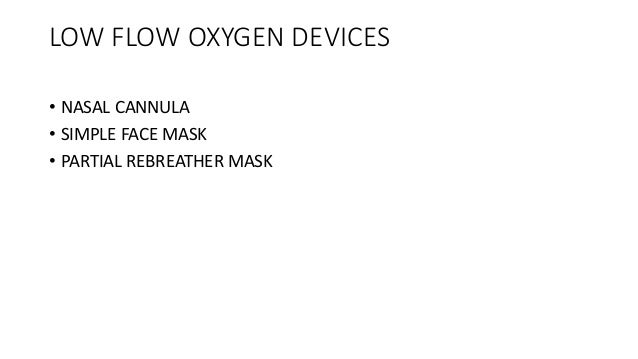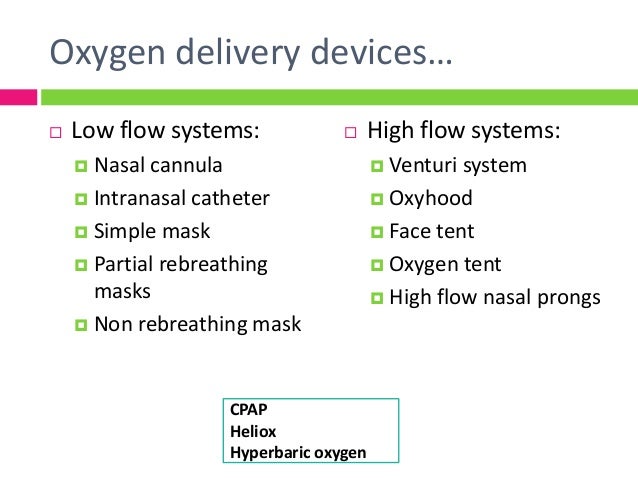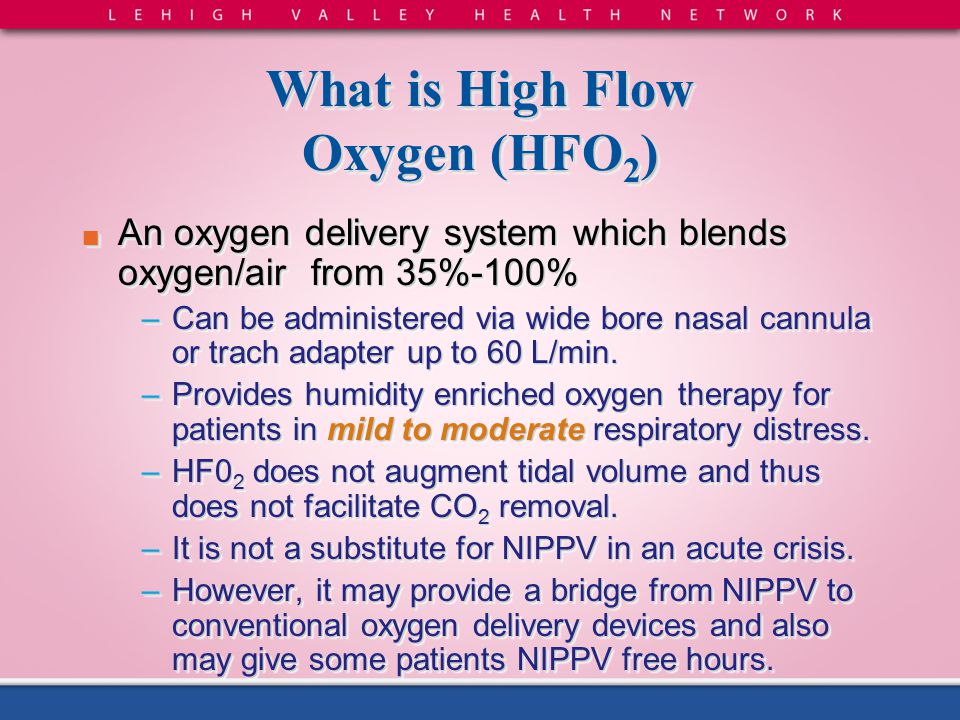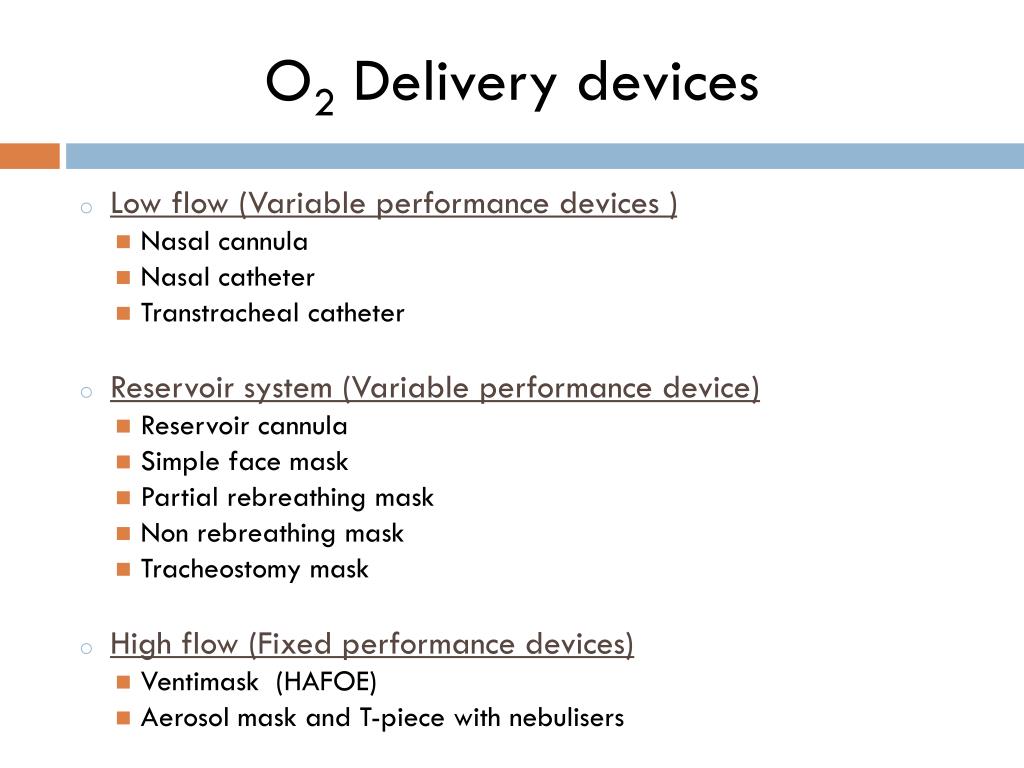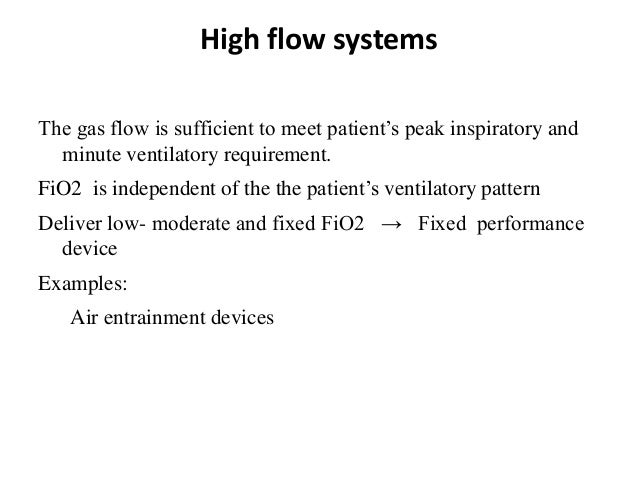High flow oxygen therapy systems used in the hospital environment usually consist of a blender used with or without oxygen from a wall outlet humidifier heated tubing and nasal cannula.
High flow oxygen devices ppt.
The percentage of oxygen inspired depends on the flow rate and the delivery device.
High flow oxygen devices these devices meet the inspiratory flow of the patient and generate accurate fio2s so long as there is a good seal between the mask and the patient s face.
Heat and humidified high flow nasal cannula or as most call it hi flow nasal cannula hfnc isn t just a standard nasal cannula cranked up to very high flow rates.
Oxygen loss is negligible but with these devices high concentrations of oxygen are not available.
Oxygen therapy can be delivered using a low flow or high flow system.
Page high flow gas delivery systems supply all the gas the patient needs.
Flow rate 1 4l min 4l will dry the nose 2l is more comfortable.
The flows are such that the patient will not be entraining room air that will lower the fio2.
The flow rate can be set on the wall tap.
The type of humidification device selected will depend on the oxygen delivery system in use and the patient s requirements.
Indications of o2 therapy 1.
These devices monitor delivered oxygen concentration supplied via a low pressure system in the delivered gas.
It actually takes gas and can heat it to 37 o c with a 100 relative humidity and can deliver 0 21 1 00 fi02 at flow rates of up to 60 liters min.
Respiratory rate and tidal volume of the patient have no.
Oxygen delivery devices 1.
Oxygen delivery devices dr.
Rightward shift facilitates unloading of o2 a 40 air entrainment 10l min o2 flow will produce a total gas flow of approximately 40l min 28 air entrainment 4 l min o2 flow will produce a total gas flow of approximately 44 l min.
In this video george gives a short review differentiating between high and low flow oxygen systems.
Delivery devices work with different flow rates.
High flow can thus be generated even though air and high pressure oxygen wall supplies are unavailable.
Low flow device most common device used for mild hypoxia can be set between 1 and 6 lpm 24 to 40 fio2 fio2 increases approximately 4 with each liter of o2 korupolur gj needham dm contemporary criticalcare.
Documented hypoxemia in adults children and infants older than 28 days arterial oxygen tension pao2 of 60 mmhg or arterial oxygen saturation sao2 of 90 in subjects breathing room air or with pao2 and or sao2 below desirable range for specific clinical situation in neonates pao2 50.
It varies from 0 15l per minute.
The system provides a high flow of heated humidified air to the patient via the nasal cannula.
All high flow systems require humidification.
